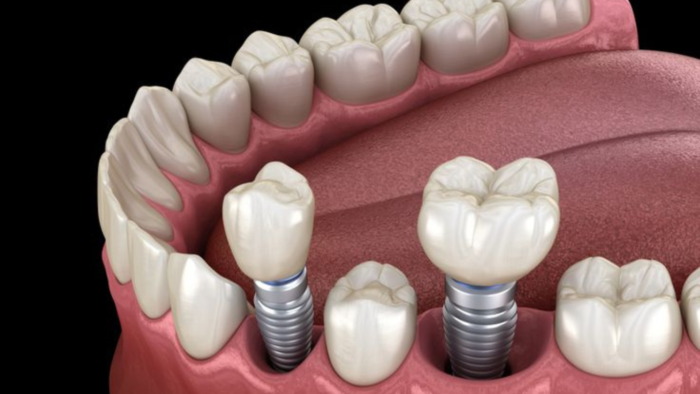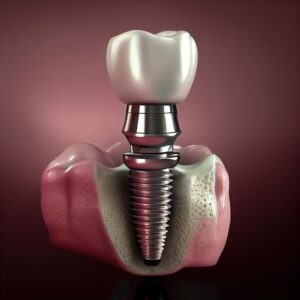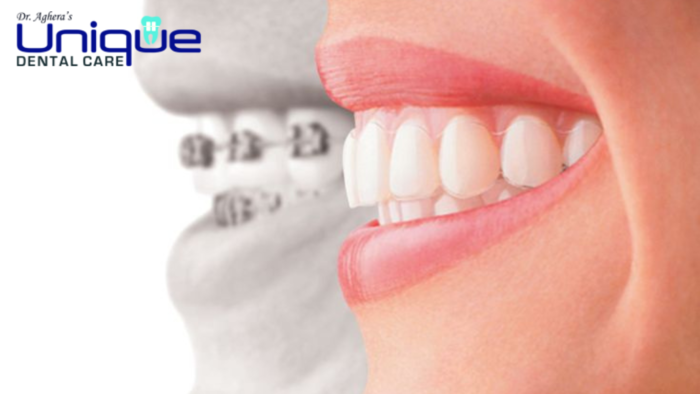
Dental Implants Failure: Exploring The Common Reasons
In the realm of oral health, many individuals contemplate dental implants in their pursuit of achieving a flawless smile. However, despite the advancements in dental technology, instances of implant failures still occur, leaving patients disheartened and in search of answers. In this comprehensive guide, we delve into the common reasons behind implant failures, shedding light on how to ensure the success and longevity of dental implants.
Understanding Dental Implants Failure
Best dental implants in Rajkot are hailed as a revolutionary solution for replacing missing teeth, providing a durable and natural-looking alternative to traditional dentures. However, despite their numerous benefits, implant failures can occur, leading to discomfort, inconvenience, and dissatisfaction for patients.
Factors Contributing to Dental Implants Failure
- Poor Oral Hygiene: Neglecting oral hygiene practices can pave the way for implant failure, as bacteria accumulation around the implant site can lead to infection and ultimately implant failure.
- Insufficient Bone Density: Adequate bone density is crucial for the stability and integration of tooth implants. Insufficient bone density can compromise the implant’s ability to fuse with the jawbone, resulting in failure.
Smoking: Tobacco use, particularly smoking, is a significant risk factor for implant failure. Smoking impedes the body’s ability to heal and can interfere with the osseointegration process, leading to implant failure. - Medical Conditions: Certain medical conditions such as diabetes and autoimmune disorders can impact the body’s ability to heal and increase the risk of implant failure.
- Inexperienced Practitioners: The skill and expertise of the dental practitioner performing the implant procedure play a crucial role in its success. Inexperienced practitioners may make errors during the placement or restoration process, leading to implant failure.
Best Dentist in Rajkot: Delivering Excellence in Dental Care
Dr. Mahesh Aghera: A Beacon of Excellence
At Unique dental care, is the Best Dental Clinic in Rajkot Dr. Mahesh Aghera, BDS, MDS, is a renowned dental practitioner dedicated to providing exceptional dental care to patients in Rajkot. With a passion for innovation and patient-centric approach, Dr. Aghera ensures that each patient receives personalized care and attention, ensuring the success and longevity of implants.
Dr. Poonam Aghera: A Commitment to Quality
Complementing Dr. Mahesh Aghera’s expertise is Dr. Poonam Aghera, BDS, who shares his dedication to delivering excellence in dental care. With a focus on continuous learning and staying abreast of the latest advancements in dentistry, Dr. Poonam Aghera ensures that patients receive the highest standard of care.

Preventing Dental Implants Failure: Expert Tips and Recommendations
Maintain Optimal Oral Hygiene
Regular brushing, flossing, and routine dental check-ups are essential for maintaining optimal oral hygiene and preventing bacterial buildup around dental implants.
Avoid Tobacco Use
Quitting smoking and avoiding tobacco products can significantly reduce the risk of dental implant failure and promote overall oral health.
Follow Post-Operative Care Instructions
Adhering to post-operative care instructions provided by your dental practitioner is crucial for ensuring proper healing and successful integration of implants.
Attend Regular Dental Check-ups
Routine dental check-ups allow your dentist to monitor the health of your dental implants and address any issues or concerns promptly.
Choose an Experienced Dental Practitioner
Selecting a skilled and experienced dental practitioner for your implant procedure is paramount to its success. Researching the credentials and expertise of your chosen practitioner can help ensure optimal outcomes.
Conclusion
In conclusion, while dental implants offer a transformative solution for missing teeth, understanding the common reasons behind implant failure is essential for ensuring successful outcomes. By prioritizing optimal oral hygiene, choosing an experienced dental practitioner, and following post-operative care instructions, patients can enjoy the benefits of a healthy and beautiful smile for years to come.
FAQs (Frequently Asked Questions)
Q: How long do dental implants last?
With proper care and maintenance, dental implants can endure for a lifetime. Yet, their longevity may be swayed by individual aspects like oral hygiene habits and overall health.
Q: Is implant surgery painful?
While some discomfort and swelling may occur following implant surgery, most patients report minimal pain during the procedure itself. Your dental practitioner will take measures to ensure your comfort throughout the process.
Q: Are implants suitable for everyone?
While dental implants are a viable option for many individuals, certain factors such as bone density and overall health may impact candidacy. Consulting with a qualified dental practitioner can help determine if dental implants are the right choice for you.
Q: Can dental implants be rejected by the body?
Dental implants are made from biocompatible materials such as titanium, which minimize the risk of rejection by the body. However, factors such as infection or insufficient osseointegration can lead to implant failure.
Q: What is the recovery time for implant surgery?
The recovery time for implant surgery varies depending on individual factors such as healing ability and the extent of the procedure. In general, patients can expect a few days to a week of downtime following surgery, during which they may experience mild discomfort and swelling.
Q: How much do dental implants cost?
The cost of dental implants can vary depending on factors such as the number of implants needed, the complexity of the procedure, and the location of the dental practice. Consulting with your dental practitioner can provide you with a personalized cost estimate based on your specific needs.

3 Teeth Alignment Issues That Orthodontic treatment Can Fix
Are you seeking solutions for teeth alignment issues? Orthodontic treatment offers effective remedies for various dental misalignments. In this comprehensive guide, we’ll delve into the top three common teeth alignment issues that orthodontic treatment can address. From crowded teeth to overbites, we’ll explore how the best dental clinic and dentist in Rajkot can help you achieve a confident smile.
Understanding Teeth Alignment Issues
Malocclusion: The Root of Teeth Alignment Woes
Malocclusion, commonly known as a “bad bite,” occurs when the upper and lower teeth do not align correctly. This misalignment can manifest in various forms, such as overbites, underbites, and crossbites. Patients with malocclusion may experience difficulties chewing, speaking, and maintaining proper oral hygiene.
Overbite: The Upper Teeth Take the Lead
When the upper front teeth significantly overlap the lower front teeth, an overbite is present. This issue not only affects the aesthetics of your smile but can also lead to jaw pain and increased risk of dental problems like tooth decay and gum disease.
Underbite: When the Lower Teeth Lead the Way
Conversely, an underbite occurs when the lower front teeth protrude past the upper front teeth. This misalignment can result in difficulties with biting and chewing, as well as facial asymmetry. Orthodontic intervention is crucial to correct underbites and prevent further complications.
Crossbite: Where Teeth Clash
When the mouth closes, a crossbite happens where a portion of the upper teeth rest within the lower teeth. This misalignment can cause uneven wear on the teeth, jaw pain, and discomfort while chewing. Best orthodontic treatment in Rajkot can realign the teeth and restore proper bite functionality.
Spacing Issues: Gaps and Crowding
Apart from malocclusion, spacing issues like gaps between teeth or overcrowding can also affect teeth alignment. These issues not only impact aesthetics but also increase the risk of gum disease and tooth decay due to difficulty in cleaning between teeth.
Gaps Between Teeth: More Than Just Aesthetic Concerns
Gaps between teeth, also known as diastema, can occur due to various reasons, including genetics, missing teeth, or abnormal growth of the jawbone. While some individuals embrace these gaps as part of their smile, others may seek orthodontic treatment to close the spaces for improved aesthetics and oral health.
Crowded Teeth: A Tight Fit
Crowded teeth occur when there isn’t enough space in the jaw for all the teeth to fit comfortably. This can lead to overlapping or twisted teeth, making oral hygiene maintenance challenging. Orthodontic solutions like braces or clear aligners can gradually shift the teeth into proper teeth alignment, alleviating crowding issues.
Aesthetic Concerns: Beyond the Physical
Beyond functional challenges, teeth alignment issues can also impact an individual’s self-esteem and confidence. Many people feel self-conscious about their smiles due to misaligned teeth, affecting their social interactions and overall quality of life.
How Orthodontic Treatment Can Help
At the best dental clinic in Rajkot, our skilled orthodontists utilize cutting-edge techniques and personalized treatment plans to address a wide range of teeth alignment issues. From traditional braces to innovative clear aligner systems, we offer solutions tailored to each patient’s unique needs and preferences.

Customized Treatment Plans: Personalized Care for Optimal Results
During your initial consultation, our orthodontic specialists will conduct a comprehensive assessment of your oral health and discuss your treatment goals. Based on this evaluation, they will develop a customized treatment plan that addresses your specific teeth alignment issues and aligns with your lifestyle.
State-of-the-Art Technology: Precision and Efficiency
We stay abreast of the latest advancements in orthodontic technology to ensure our patients receive the highest standard of care. From digital impressions to 3D treatment simulations, our state-of-the-art tools enable us to achieve precise and efficient results while minimizing discomfort and treatment duration.
Continuous Monitoring and Support: Your Smile Journey Partner
Throughout your orthodontic journey, our team will provide ongoing support and monitoring to ensure the effectiveness of your treatment. Regular progress checks and adjustments will be scheduled to track your progress and address any concerns or questions you may have along the way.
Conclusion
In conclusion, addressing teeth alignment issues is essential not only for aesthetic purposes but also for maintaining optimal oral health and function. At the best dental clinic in Rajkot, our dedicated team is committed to helping you achieve a beautiful and healthy smile that you can confidently share with the world. Schedule a consultation with us today and take the first step towards a brighter, more confident future.
FAQs (Frequently Asked Questions)
Q: How long does orthodontic treatment typically take?
Orthodontic treatment duration varies depending on the severity of the teeth alignment issues and the chosen treatment modality. Treatment durations typically range from six months to a span of two years, on average.
Q: Are braces the only option for correcting teeth alignment issues?
No, braces represent merely a single choice among the plethora of orthodontic treatment alternatives accessible. Clear aligners, lingual braces, and other specialized appliances may also be suitable depending on your specific needs and preferences.
Q: Will orthodontic treatment be painful?
While some discomfort or soreness may occur initially as your teeth adjust to the orthodontic appliances, it is usually manageable and temporary. Over-the-counter pain relievers and orthodontic wax can help alleviate any discomfort.
Q: Can adults undergo treatment?
Yes, treatment is not limited to children and teenagers. Many adults choose to undergo treatment to improve their smiles and oral health.
Q: How do I maintain good oral hygiene during treatment?
Maintaining good oral hygiene is crucial during orthodontic treatment to prevent cavities, gum disease, and other dental problems. Brushing and flossing regularly, using interdental brushes or water flossers, and attending routine dental check-ups are essential habits to uphold.
Q: After finishing treatment, will wearing retainers be necessary?
Yes, wearing retainers after completing orthodontic treatment is typically necessary to maintain the results and prevent teeth from shifting back to their original positions. Your orthodontist will provide specific instructions on retainer wear and care.